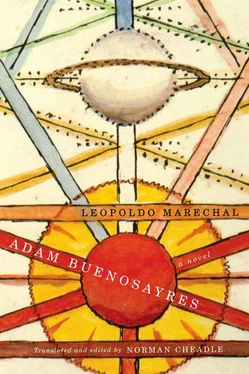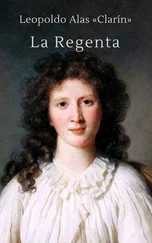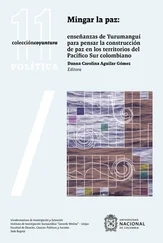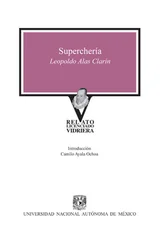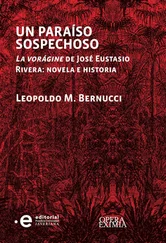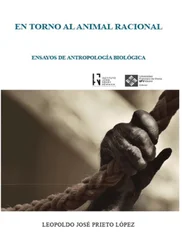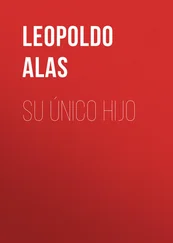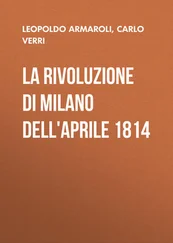For lack of one and the other, Adam resolved to dialogue with himself. First question: who was he, this absurd entity, this nebulous smoker, this object enclosed within a cube of bricks and mortar, in a house on Monte Egmont Street, in the city of Buenos Aires, at eight o’clock on the morning of April the twenty-eighth of whatever year? Answer: he was, of course, human , the enigmatic reasoning animal, that tricky mélange of a mortal body and an undying soul, the dual freak whose bizarre antics made the angels weep and the demons laugh, the unlikely creature whom its own Creator regretted. What reasons did Adam Buenosayres suggest to justify the invention of the human monster? The Creator needed to manifest all possible creatures; the ontological order of His possibilities required a link between the angel and the beast; hence, the human hybrid, something less than an angel, something more than a brute. What did Adam do after putting forward such a wise hypothesis? As usual, he admired himself at length, graciously acknowledged ad intra the wild applause of an invisible public, and then turned his attention to the question of his corporeal nature. What observations did he make concerning his body? He observed that his animal component conformed to the noble structure of the vertebrates and he recalled, not without vanity, that he occupied in this order the enviable rank of the mammal family; he went on to classify himself among the two-handed mammals, a zoological dignity that justified Adam’s legitimate pride. What other satisfaction did he derive from his study of his carnal nature? He told himself that his body, stretched out between two not very clean sheets, was the ancient and venerable Microcosm, condensation and centre of the entire visible world, summary of the three realms and possessor of three souls: the elemental soul of minerals, the vegetative soul of plants, and the sensible soul of animals. Devourer and assimilator of all the lesser corporeal natures (the great Omnivore!), his body was bound to the Macrocosm by analogy. Thus his heart corresponded to the Sun, his brain to the Moon, his liver to Jupiter, his spleen to Saturn, his kidneys to Mars, his testicles to Venus, and his penis to Mercury. How did he react when he considered these vast projections of his body? With melancholy, for he saw himself subject to two limiting conditions, space and time, which from the start condemned him to the error and fatigue of local movement, to becoming, to death. This reminded him of his childhood dread of time and space. How had the terror called Time invaded him? Back in Maipú, he had conceived Time as a stream that flowed over his house, an invisible stream whose waters brought the newborn and carried away the dead, turned the wheels inside clocks, peeled away walls, and gnawed away at the faces one loved. And Space? This terror had struck when the pedant Don Aquiles taught them in class that it would take a locomotive millions of years to get to the star Sirius; but also at night out on the plain, when he gazed up at the dense constellations of the southern sky until vertigo overtook him and he clung to his motionless horse, just to feel next to his fearful flesh something alive, close, friendly. How had he managed to get over these two terrors? He had overcome them in his soul, which was neither spatial nor temporal; by virtue of his soul, which could rescue the rose from the pain of time and space by abstracting its intelligible form from its sensitive flesh and giving it the hazard-free life of abstract numbers; thanks to his soul, which had apprehended Don Aquiles’s astronomical system, internalized it and set it in motion within like a toy planetarium; by the grace of his soul, which, being a microcosm too, not only devours and assimilates the whole intelligible world but also gives sanctuary to the spirit of spent things. What other aspects of his soul did Adam review? Its immortality, its divine origin, its fallen nature. In what personal intuitions had he recognized the immortality of his soul? In the soul’s absolute certainty of its permanence, which it discloses to its fratre corpo , causing the latter to entertain pernicious illusions; and in the soul’s incredulity, alienation, and repugnance vis-à-vis death as total annihilation, a feeling common to all human beings. By what signs had he come to understand the divine origin of his soul? By its irresistible tendency toward unity, even though it lived in the world of multiplicity; by its notion of a necessary happiness, possible only in an absolute, motionless, invisible, and eternal Other, even though the soul lived in a realm relative, changing, visible, and mortal; by its vocation for the virtues Truth, Goodness, and Beauty, divine attributes to which the soul gravitates as if to its natural atmosphere or its homeland. How had he recognized his fallen nature? Negatively, when he noticed the way his intelligence strayed, his lapses of memory, his failures of will; positively, when he exercised these three powers and observed glimmers and vague stirrings that felt like vestiges of a lost original nobility.
Did Adam concoct, as was his wont, some poetic analogy to express such a vexed duality? He had no need, Plato’s inimitable simile sprang to mind: his soul was like a wingèd chariot pulled by two different horses. One of them, sky-coloured, its mane bristling with stars, its delicate hooves airborne, tended to draw always upward, toward the heavenly meadows where it was born. The other, earth-coloured, slack-lipped, balky, its crupper twisted, paunchy, long-eared, knock-kneed, down at the mouth, and stumble-gaited, always pulled downward, itching to get stuck in muck up to the crotch. Poor Adam, the driver, held the reins of both horses and strove to keep them on track. When the accursed colt prevailed and dragged down the soul’s entire équipage, the divine equine seemed to be asleep in its traces. But when the celestial steed took over, its limbs plied a marvellous light, its nostrils flared to the scent of divine alfalfa fields, and the coach flew, hoisting aloft the dead weight of the earthly horse. The sublime charger kept going higher until it sensed the air thinning, its sinews slackened, and it fell asleep drunk on loftiness. That’s when the terrestrial animal woke up and, finding its teammate asleep, let itself fall down hard, given over to a voracious hunger for impure matter. When, satiated, this beast nodded off, the noble bronco awoke and was master of the coach once more. Thus, between one horse and the other, between heaven and earth, now pulling on this rein and now on that one, Adam’s soul rose up or tumbled down. At the end of each trip Adam the coachman wiped acrid sweat from his brow.
What did Adam do after thus analysing his body and soul? He re-examined himself as a compositum , and on realizing that he hadn’t been born of his own will, he resorted to genealogy to understand his advent to this sad world. What did he determine genealogically, then? Two different lines had joined and unwittingly incurred the infinite responsibility of bringing him onto this plane of existence. Paternal branch: his father was born by the banks of the Río de la Plata, himself the son of grandfather Charles and grandmother María, both natives of the clear-browed city of Lutecia. Maternal branch: his mother too was born beside the Río de la Plata, daughter of Grandfather Sebastián and Grandmother Ursula, who both hailed from Cantabria, hard by the barren sea. How did Adam explain the curious fact that two such different branches had left their native Europe to come together on the banks of the River-named-after-a-metal? 41The visible causes: Republican ideas in grandfather Charles, banished by the French king Louis-Philippe; wanderlust in Grandfather Sebastián, incorrigible sailor. The intelligible causes, according to the astrologer Schultz, were the neocriollo angels, those inciters to emigration, invisible tempters who roamed the world, recruited volunteers in every nation, and with their siren song led them into concave vessels. These same messengers flew before the ships, one wing steadying their vulnerable keels, the other holding wind and storm clouds at bay, thus ensuring the recruits’ safe arrival that they might fulfill their exalted destiny in the Land-which-from-a-pure-metal-takes-its-name. Didn’t Adam feel shame at the thought that angels sporting blue and white cockades might witness his scandalous inertia? He wasn’t ashamed at all: he proceeded to locate himself in space and recognized that his position was terribly fraught with motion, since he was at number 303 Monte Egmont Street in the city of Buenos Aires, Argentina, Spanish America, southern hemisphere, planet earth, solar system, Macrocosm, and therefore was subject to incessant movement, to the vertiginous spiralling dance resulting from the triple movement of the earth, in its rotation on its axis, its orbit around the sun, and its flight through space along with the entire planetary system toward the constellation of Hercules at the speed of 1,170 kilometres a minute. So, what did he do, now that he felt himself to be a cosmic traveller and stellar dancer?
Читать дальше
